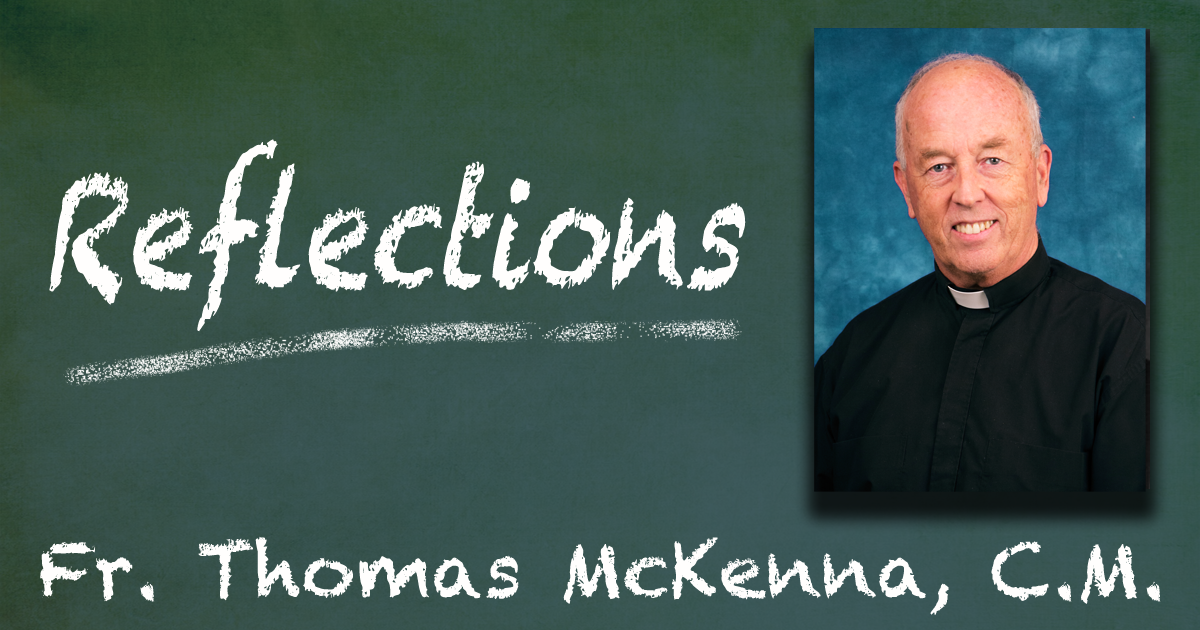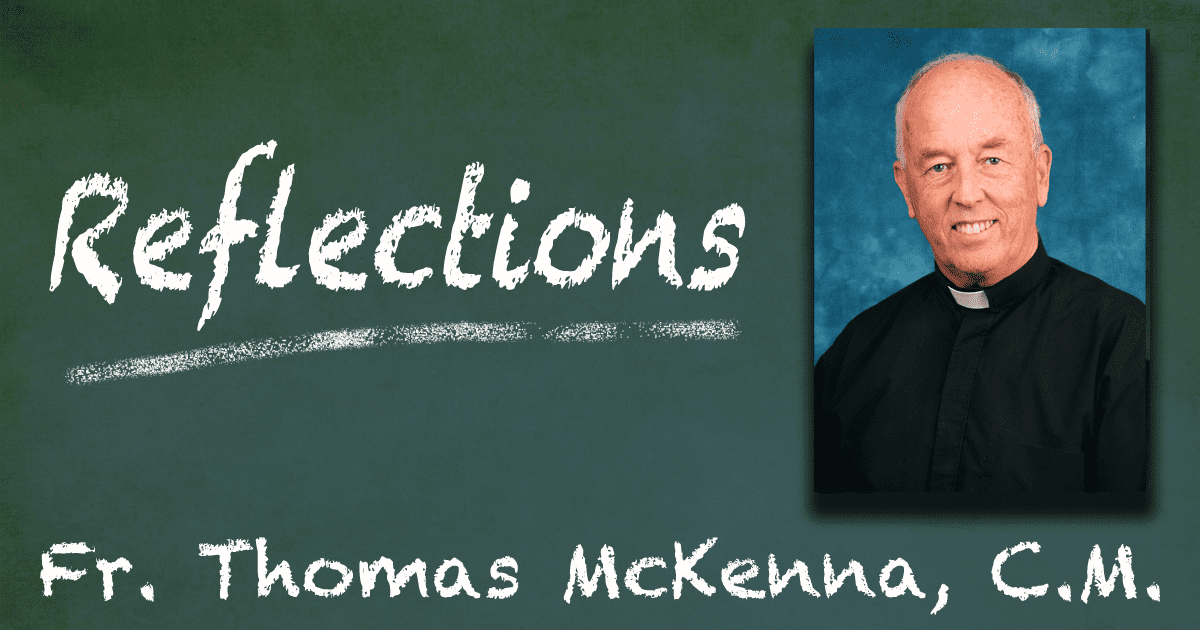Framing The Scene

Framing The Scene (John 11:1-45)
I remember a wise person once telling me that there’s no such thing as an un-interpreted fact. Everything you see out there you see through some kind of frame, some angle of approach that not only affects how you see, but more importantly opens you up to or closes you off from what’s really there to see.
And so for instance my mood as a frame for what I notice when I look up at the sky. I’m feeling bad – and I see that one cloud on the horizon as threat to the whole day ahead. I’m feeling good – and that same cloud is now a lovely contrast color to all the beautiful blue. But the more important question: what is the frame that lets me see through to what’s most fully there? What is that true lens, that right interpreting angle, the most inclusive window that opens onto the fullest vista?
In the story of Lazarus brought back from the dead, Jesus is “the interpreter.” He’s the one who takes up this sad situation and sets it inside its most encompassing and penetrating frame. Or in a current expression, he gives it the right narrative.
So Mary and Martha: “Our brother Lazarus is dead and in the tomb. If you were here Jesus, you could have done something about it. But it’s all over now. Death has won out.” But then, Jesus’ view: “I am the resurrection and the life. Whoever believes in me, even if he dies, will live. And everyone who lives and believes in me will never die.” Here we have this startlingly new way of seeing things, spoken in a household in deep mourning, to family members on their way to the graveside.
Jesus’ reframing things gets clearer at the tomb before the miracle happens, “Did I not tell you that if you believe, you will see the Glory of God.” And after still another spell binding interpretation, this time to the people standing around, “Father, I thank You for hearing me. I know that You always hear me. But because of this crowd here I have said this that they may believe that You sent me.”
Jesus is recasting the scene by setting it against its much vaster backdrop, how all this appears in his Father’s eyes. He’s giving it the interpretation of someone who looks out at the world as it’s wrapped inside the presence and power of God.
To say it again, he’s standing by this tomb of death and restored life and helping the people there to refocus everything, to penetrate more deeply into what has happened. He’s telling them that these events line up according to a different set of coordinates, that they make sense only if one goes by a different compass. And that is, the east, west, north and south of The Kingdom. And that is, the world of his Father where sin and death are not the last word.
And so how about this Kingdom-of-God interpreting as it might go on in our own lives?
Think of the people who have done that for you. Reflect on the situations and words that have recast the way you looked at things and helped you to come at life more by the light of the Gospel. So for instance, that person who by word or example changed the way you saw things. Certainly a person like one of the Saints, canonized or not – and for sure Vincent and Louise and Frederick and the life-altering effects their stories have had on you.
One particular incident comes in a story told by the late Fr. John Kavanaugh, S.J. As a seminarian he travelled to India to work with Mother Theresa and her sisters. One evening coming back from a long tiring day ministering to the sick in the streets of Calcutta, they all headed for the peace and quiet of their bedrooms. But off in the corner of his eye he noticed a figure moving down a corridor toward the hospice section of the building. It was Mother Theresa, walking by herself — and he decided to follow her.
As he stepped into a dank and sour-smelling room filled with people in their last hours, he watched her walk up to a dying woman. But it was how she did this that recast that scene for him. She approached the bed reverently, almost genuflecting, and in his words “as if she were going up to receive Holy Communion.” It was this move as much as any other thing he’d read or heard that helped him begin to see people as carrying in themselves the person of Christ. Years later, he looked back to this whole body-gesture of hers as a re-framing of what it was to come into the presence of people who were vulnerable and needy, responding to the Christ within them. Her move that night “re-interpreted” what was really going on in that room, both there and thereafter.
Think of the times you yourself have been an “interpreter for the Kingdom,” for others.
- Times when you’ve been able to help people to see things in that new light.
- Times when by what you’ve said or done, you’ve helped others to connect the wider range of dots, which connections opened them up onto a whole new vista.
- Incidents in your ministry when you’ve seen hope reappear because of an action you did or an insight you opened up.
So for instance, treating others with dignity and thereby helping them to look again at themselves. Advocating for justice and fair treatment, helping to shift the backlighting of the scene – “These are not just extra numbers who will overcrowd our cities, but God’s loved children.”
All these things, putting the situation in a different light, casting it in that brighter more penetrating radiance that reveals what’s most deeply there.
Years ago, there was a book about preaching whose title was “Naming Grace.” It set out the task of the preacher as looking about in life for scenes of God’s presence and then using the scriptures to open up the graced meaning of these happenings. That is, to name them as grace.
It’s an on-target phrase to describe the kind of thing Jesus is doing at the grave site of Lazarus. For all the people there he’s interpreting what is really and most deeply going on. He’s recasting the scene, reframing the events so that the people come to recognize what they had not yet been able to see, the glory of God at work in their midst.







Perfect!
I enjoyed reading your reflection, Tom, I subscribe to The
Digest. It was. Pleasant surprise to see your picture, and know you were around somewhere. I always did enjoy your homilies. I have changed my frame of reference many times over, and have not only been an influence for others to give theirs a second look, but have enjoyed so many others who have broken through to me.
I am retired now, at 75.,.,enjoy just helping others when I can. I am a Sister For Christian Community now 33 years. I live in Delaware since I retired here. There are 5 of us in the state. Hope I can find out where you are, I’m thinking you are teaching somewhere in a university. I have not seen a Vincentian for quite a while. Last one, Fr. John Lawler….I got to the nursing home before he passed. He guided me through my novitiate days, and even when I,went to Michigan to grad school I made a retreat with him several summers. He is a Saint. How blessed I was to love him and to know him. And about you….I admired you very much. Sad that I lost all of you….who were such dear friends and wonderfully good people. If you have time write back and let me know where you are
And send me an email address. Mine is: rosannetanzola@comcast.net.
Thankful for your spiritual reflection, grateful for your wonderful presence in my life. Bless you!
Affectionately, respectfully,
Rosanne Tanzola
Thanks Tom, how I needed this end of day reflection. It was quite a challenging one today, grateful for the beautiful weather. Still can’t believe how we connected on my birthday, it meant so very much! Truly the work of the Spirit your number appearing on my home phone! Do take care and Happy ? Anniversary this May! Loose track of actual dates for all of you! Prayers and love, Katie